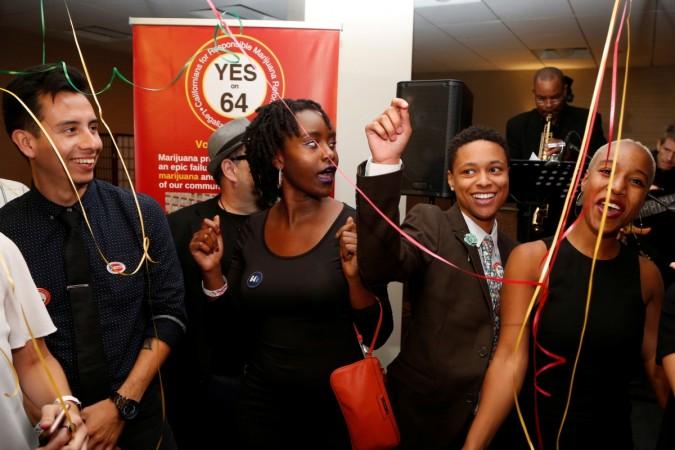
After legitimising the plant for medical use 20 years back, recreational use of marijuana has been voted legal in California by 55.8 percent of people.
The Adult Use of Marijuana Act, aka "Proposition 64", gives the rights to adults ageing 21 years or more to possess, grow, use and sell marijuana.
"We are very excited that citizens of California voted to end the failed policy of marijuana prohibition," said Nate Bradley, executive director of the California Cannabis Industry Assn. "Proposition 64 will allow California to take its rightful place as the centre of cannabis innovation, research and development," as reported by latimes.com
The first US state which established a market for regulated marijuana is Colorado; the same was then done by four other states along with Washington DC, as per a Science World Report.
A medical marijuana program was started by California in 1996, making it the first state to spearhead such a program. In 2010, it had its first chance to legalising recreational marijuana but this idea was rejected by the voters back then, the Los Angeles Times reported.
Though cannabis is now legalised, numerous restrictions have bounded this law, which includes no smoking it outside at public places, having it only at home, etc. Now, in a significant moment in California's history, selling cannabis will be starting from the beginning of January 2018.
Law enforcement officials were disheartened by the legalisation of Proposition 64 in the state and aim at keeping a close eye on the following of the rules and regulations by the people.
"We are, of course, disappointed that the self-serving moneyed interests behind this marijuana business plan prevailed at the cost of public health, safety, and the well-being of our communities," said Chief Ken Corney, president of the California Police Chiefs Assn., as quoted by Los Angeles Times.
"We will take a thorough look at the flaws in Proposition 64 that will negatively impact public health and safety, such as the initiative's substandard advertising restrictions and lack of prosecutorial tools for driving under the influence of marijuana, and begin to develop legislative solutions," Corney added.










